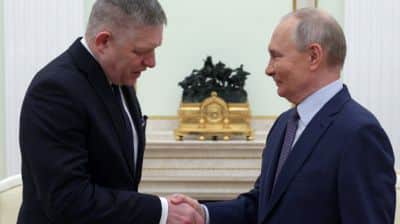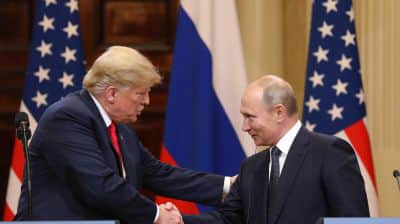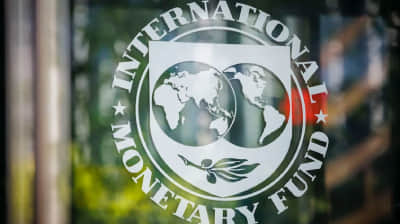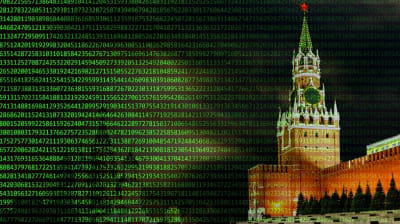US State Department prepares secret strategy for Ukraine with strong anti-corruption focus – Politico
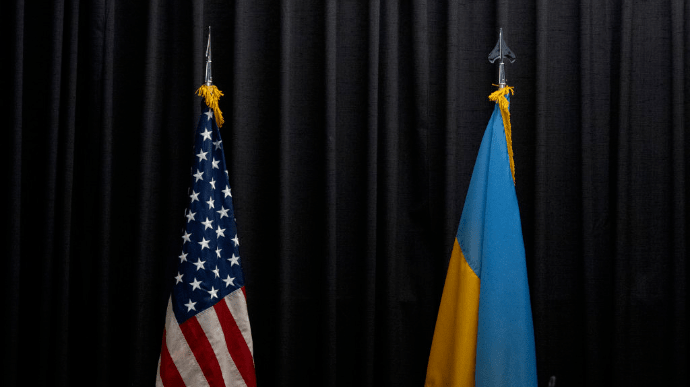
The United States has prepared a confidential version of its strategy to help Ukraine which sees corruption as a real threat. The strategy includes anti-corruption reforms, deoligarchisation, development of the Ukrainian defence industry, transition of the army to NATO standards, and in-depth English language training.
Source: Politico
Quote: "A report obtained by Politico details specific plans to reform Ukrainian institutions and warns Western support may hinge on cutting corruption.
Biden administration officials are far more worried about corruption in Ukraine than they publicly admit, a confidential U.S. strategy document obtained by Politico suggests.
The "sensitive but unclassified" version of the long-term U.S. plan lays out numerous steps Washington is taking to help Kyiv root out malfeasance and otherwise reform an array of Ukrainian sectors. It stresses that corruption could cause Western allies to abandon Ukraine’s fight against Russia’s invasion, and that Kyiv cannot put off the anti-graft effort."
Details: The secret document is reportedly three times the size of the public version released by the State Department.
The confidential version of the Integrated Country Strategy (for Ukraine) contains much more detail on US goals in Ukraine, from privatising its banks to helping to increase the number of English-language schools and encouraging its military to adopt NATO protocols.
Many of the goals are designed to reduce corruption.
The media believes that the Biden administration wants to put pressure on Ukraine to reduce bribery because American aid is at stake.
But too much public discussion could embolden opponents of US assistance to Ukraine: "Any perception of weakened American support for Kyiv also could cause more European countries to think twice about their role."
One US official familiar with the discussions confirmed to Politico that the Biden administration is discussing the possibility of conditioning future economic assistance on "reforms to tackle corruption and make Ukraine a more attractive place for private investment" with Ukrainian leaders.
The official added that such conditions are not being considered for military assistance.
The Integrated Country Strategy includes a list of goals, timelines for achieving them, and intermediate results that US officials would like to see achieved. (The State Department develops such strategies for many countries every few years.)
A State Department spokesperson did not say whether Washington had shared the full strategy with the Ukrainian government or whether a classified version exists.
The document states that fulfilling US objectives for Ukraine includes keeping US promises to provide equipment and training to help the Armed Forces of Ukraine repel the Kremlin's attacks.
The confidential version also describes US goals such as helping to reform elements of Ukraine's national security apparatus to ensure a "decentralised, risk-tolerant approach to execution of tasks" and reduce "opportunities for corruption".
The US strategy also envisages the transition of the Ukrainian military to NATO standards.
One of the most anticipated steps listed in the confidential version is that Ukraine's Ministry of Defence "establish a professionalised junior officer and non-commissioned officer corps with NATO standard doctrine and principles."
Even the format and content of Ukrainian defence documents should "reflect NATO terminology", the confidential section of the strategy says.
One of the goals includes the creation of a "national-level resistance plan". The media interpreted this as a hint that ordinary Ukrainians would fight back if Russia seized more territory (however, the State Department spokesperson did not elaborate on this point).
The United States also wants Ukraine to produce its own military equipment, creating a "domestic defence industry capable of supporting core needs" and an environment that fosters start-ups in defence information technology, one of the confidential sections says.
US officials are also concerned about the role of oligarchs in the Ukrainian economy. The open part of the strategy states: "Deoligarchisation, particularly of the energy and mining sectors, is a core tenet to building back a better Ukraine."
One of the indicators of success, the classified version says, is that the Ukrainian government "embraces meaningful reforms decentralising control of the energy sector."
The US appears to be keen to help Ukrainian institutions build their oversight capacity.
Among the goals listed are assisting local authorities in assessing corruption risks and reforming human resources services.
As one of the examples, the strategy mentions that the US is helping the Accounting Chamber of Ukraine to improve its auditing and related work, in particular, to enable it to track direct US budget support.
The strategy focuses on describing the ways in which the United States is assisting Ukraine's healthcare, cyber defence, and organisations fighting disinformation.
The strategy calls for support for Ukraine's antimonopoly efforts and initiatives to increase tax revenues.
The confidential part calls on Ukraine's financial system to "increase lending to encourage business expansion" and reduce the role of the state in the banking sector.
The US strategy also aims to ensure that Ukraine not only maintains its Western orientation, but also develops special ties with the United States.
Washington believes that one of the ways this will happen is through the English language. The strategy states that the United States is offering technical and other assistance to Ukraine's Ministry of Education to improve English language teaching, and believes that it can help reintegrate Ukrainians liberated from Russian occupation.
US officials are also helping Ukraine build the capacity to prosecute war crimes in its own judicial system. The desired interim results include the selection of over 2,000 new judges and the review of more than 9,000 complaints of judicial misconduct.
The strategy also calls for the restoration of the US’s diplomatic presence in Ukraine, expanding it beyond Kyiv to cities such as Lviv, Odesa, Kharkiv and Dnipro.
Background:
- Mike Pyle, the White House Deputy National Security Advisor for International Economics, sent a letter to the Donor Coordination Platform with a list of reforms that Ukraine must implement in order to continue receiving aid.
- The US Embassy said that it had indeed handed over a "list of priority reforms" to Ukraine for "integration into Europe".
Ukrainska Pravda is the place where you will find the most up-to-date information about everything related to the war in Ukraine. Follow us on Twitter, support us, or become our patron!
